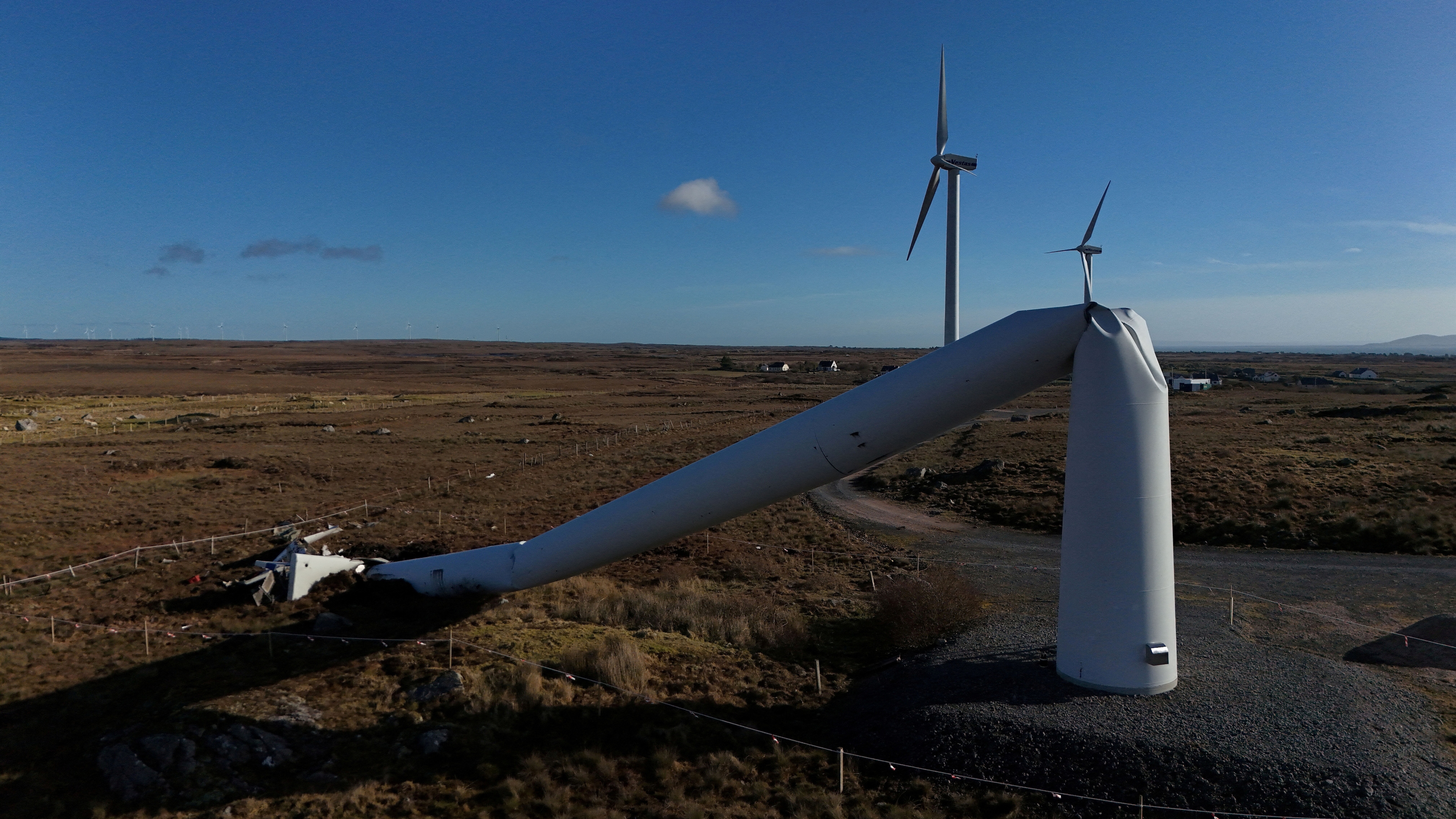Sustainability and profitability can co-exist. Here’s how

The effects of climate change have created serious doubts over the continued existence of mankind.
Image: REUTERS/Bruno Kelly
Stay up to date:
Values
- There is an urgent need for businesses to look beyond the bottom line.
- Businesses with ESG principles built into their strategy, can mitigate risk and drive profitable growth.
- The onus lies with business leaders to figure out the right balance between short-term and long-term priorities.
As part of my routine interactions with colleagues, industry peers, and people on the shop floor, I am often asked the question: “Can sustainability & business profitability co-exist?” Before I can reply, I am reminded of some unpleasant first-hand experiences – the dangerous pollution levels in the city I live in hitting a three-year high and undoubtedly shortening our life expectancy.
The effects of climate change and global warming have created serious doubts over the continued existence of mankind. Why are we still debating the merits of marrying sustainability with business profitability?
From muted conversations to war cry
In the race to accelerate economic growth, many imbalances have been created in the ecosystem, so much so that the very survival of our planet is at stake. It is therefore important that the conversations around sustainability and business profitability translate into a war cry to save the Earth and our future.
Overhauling the existing economic framework: thinking beyond GDP
For the longest time, business leaders have been fixated on ways of maximizing value for their shareholders. However, in this crumbling social world order, GDP is not the only yardstick to measure economic performance.
Considering the seriousness of the matter, there is an urgent need for businesses to look beyond the bottom line and pursue a stakeholder-centric approach, which essentially means operating a business with a focus on environmental, social, and corporate governance (ESG) metrics.
Popular notions of sustainability – recycle and reuse – need to evolve and each one of us has to “rethink” and “re-imagine” new possibilities of doing business. Perhaps there is also a need for more structured benchmarking and reporting.
Investing for a better future: ESG (Environmental, Social and Governance)
There are many reports that cite the direct correlation between sustainable practices, share prices, and business performance.
According to a 2018 global survey by FTSE Russell, an index provider, more than half of global asset owners are currently implementing or evaluating ESG considerations in their investment strategy.
In 2018, Bank of America Merrill Lynch found that firms with a better ESG record than their peers, produced higher three-year returns, were more likely to become high-quality stocks, were less likely to have large price declines, and were less likely to go bankrupt.
Apart from that, businesses with ESG principles built into their long-term growth strategy, can mitigate risk and drive profitable growth by investing in sustainable innovations that positively impact the world. Through improved corporate governance, they can attract the best talent and build the most relatable and effective marketing campaigns.
Focus on “material” matters
Companies like us, which track their greenhouse gas emissions and implement internal carbon pricing, are always better prepared for a regulatory future where carbon is priced. This underscores a new trend in sustainable investing that focuses on “material” issues that impact a firm’s valuation. Materiality differs for each industry. Forward-thinking investors look for concrete evidence in a company’s annual reports to ensure that the business is focused on material ESG issues rather than a traditional commitment to sustainability.
To say the least, there are some obvious green shoots. However, it depends entirely on us whether they become a full forest or remain just pockets of green.
Collective awakening
The 2019 UN report on sustainability suggests that “sustainable business practices” have made significant inroads into the growth agenda of forward-thinking CEOs. From individuals to activists, think tanks, business, and political leaders – all have woken up to the idea of mainstreaming sustainability.
There are plenty of examples to show that sustainable businesses can make good money. That shows no sign of stopping. Research companies are already working on the possibility of marketing bottled air for a future where we have almost exhausted all of the global oxygen supply.
Mirroring principles and practices
Creating sustainable value and enhancing market performance has never been more challenging. Being a company with a purpose, we have integrated sustainability into our company’s core strategy with the intent of extending its radius of responsibility beyond the immediate benefit of doing long-term good.
Our sustainability practices and initiatives, including carbon pricing, science-based targets, and investment in green technology solutions are a great reflection of the fact that going green can create greater value for the stakeholders, beyond just profits.
Our Green Service offering underscores the idea of using technology to provide green solutions for a better society, such as our Smart Energy Management and Smart Street Lighting.
The role of leaders in shaping a sustainable, profitable world
Building a profitable business is a challenge, and running a sustainable business can be tough, but if we rethink and re-imagine possibilities, we can achieve anything.
It is amazing to see how far technology and multinational corporations have already transformed business. All we need now is to translate the traditional vision of “business profitability” to one of “broader social impact”.
Today’s leaders are faced with an incredible opportunity to carve out a new future for their businesses by importing the principles of sustainability into their strategy. Amid this growing focus on people, planet, and profits, the onus lies with the business leaders to figure out the right balance between short-term and long-term priorities to create enhanced value for stakeholders.
Don't miss any update on this topic
Create a free account and access your personalized content collection with our latest publications and analyses.
License and Republishing
World Economic Forum articles may be republished in accordance with the Creative Commons Attribution-NonCommercial-NoDerivatives 4.0 International Public License, and in accordance with our Terms of Use.
The views expressed in this article are those of the author alone and not the World Economic Forum.
Forum Stories newsletter
Bringing you weekly curated insights and analysis on the global issues that matter.
More on Sustainable DevelopmentSee all
Murchana Roychoudhury and Saurabh Shah
August 12, 2025
Elizabeth Henderson and Daniel Murphy
August 8, 2025
De Rui Wong and Keebum Kim
August 7, 2025
António Costa
August 6, 2025
Mauricio Zuazua and Francisco Betti
August 4, 2025
Anurit Kanti
August 4, 2025






